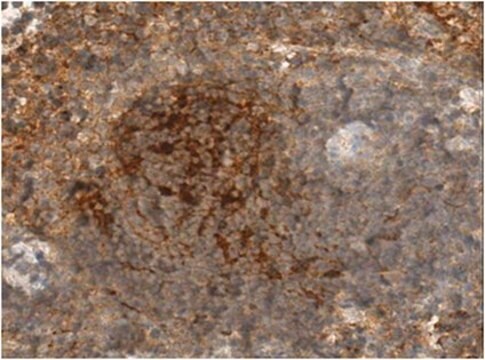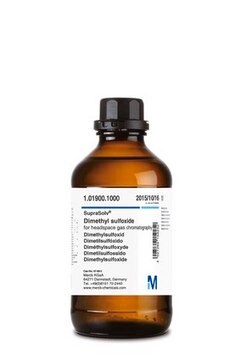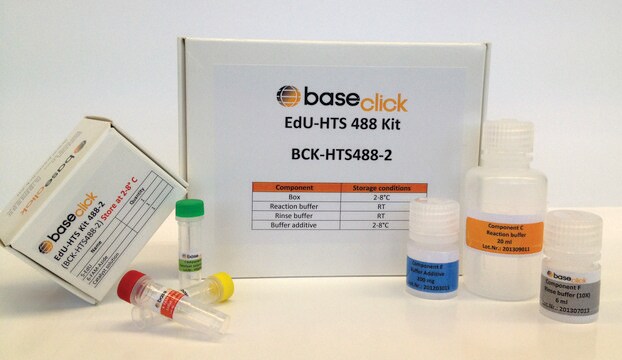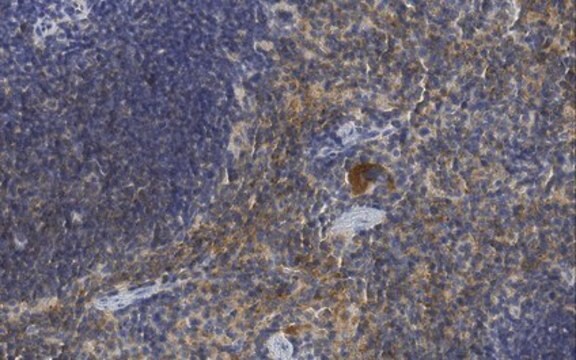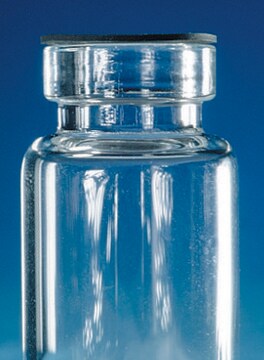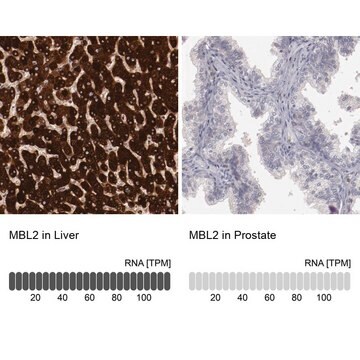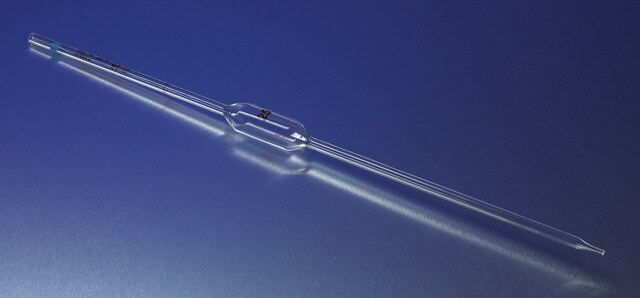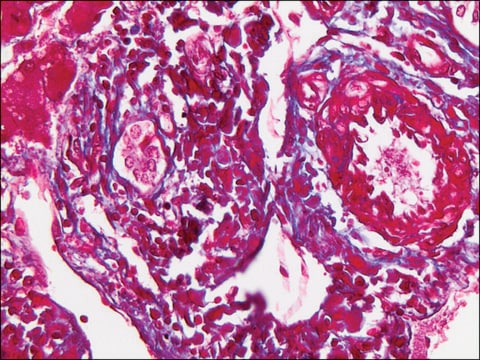MABF2672
Anti-fHbp Antibody, clone JAR 1
About This Item
Produits recommandés
Source biologique
mouse
Niveau de qualité
Conjugué
unconjugated
Forme d'anticorps
purified antibody
Type de produit anticorps
primary antibodies
Clone
JAR1, monoclonal
Poids mol.
calculated mol wt 28.99 kDa
Produit purifié par
using protein G
Espèces réactives
(Neisseria meningitidis)
Conditionnement
antibody small pack of 100 μL
Technique(s)
ELISA: suitable
dot blot: suitable
inhibition assay: suitable
western blot: suitable
Isotype
IgG3
Séquence de l'épitope
C-terminal half
Numéro d'accès Protein ID
Numéro d'accès UniProt
Conditions d'expédition
dry ice
Modification post-traductionnelle de la cible
unmodified
Informations sur le gène
bacterial ... gna1870(2827909)
Description générale
Spécificité
Immunogène
Application
Evaluated by Dot Blot analysis with recombinant fHbp.
DOT Blot Analysis: Various concentrations of recombinant rfHbp 1D1 (variant 1); rfHbp 1D77 (variant 2); and rfHbp 1D28 (variant 3) were probed with Anti-fHbp, clone JAR1 at 1:250 dilution. This antibody specifically detected rfHbp 1D1 (variant 1).
Tested Applications
Inhibition Assay: A representative lot of this antibody inhibited binding of factor H to factor H binding protein (fHbp).(Giuntini, S., et al. (2012). PLoS One. 7(3):e34272).
Western Blotting Analysis: A representative lot detected fHbp in Western Blotting applications (Welsch, J.A., et al. (2004). J Immunol. 172(9):5606-15).
ELISA Analysis: A representative lot detected fHbp in ELISA applications (Welsch, J.A., et al. (2004). J Immunol. 172(9):5606-15; Giuntini, S., et al. (2012). PLoS One. 7(3):e34272; Vu, D.M., et al. (2012). Sci Rep. 2:341).
Note: Actual optimal working dilutions must be determined by end user as specimens, and experimental conditions may vary with the end user
Forme physique
Stockage et stabilité
Autres remarques
Clause de non-responsabilité
Vous ne trouvez pas le bon produit ?
Essayez notre Outil de sélection de produits.
Code de la classe de stockage
12 - Non Combustible Liquids
Classe de danger pour l'eau (WGK)
WGK 2
Certificats d'analyse (COA)
Recherchez un Certificats d'analyse (COA) en saisissant le numéro de lot du produit. Les numéros de lot figurent sur l'étiquette du produit après les mots "Lot" ou "Batch".
Déjà en possession de ce produit ?
Retrouvez la documentation relative aux produits que vous avez récemment achetés dans la Bibliothèque de documents.
Notre équipe de scientifiques dispose d'une expérience dans tous les secteurs de la recherche, notamment en sciences de la vie, science des matériaux, synthèse chimique, chromatographie, analyse et dans de nombreux autres domaines..
Contacter notre Service technique